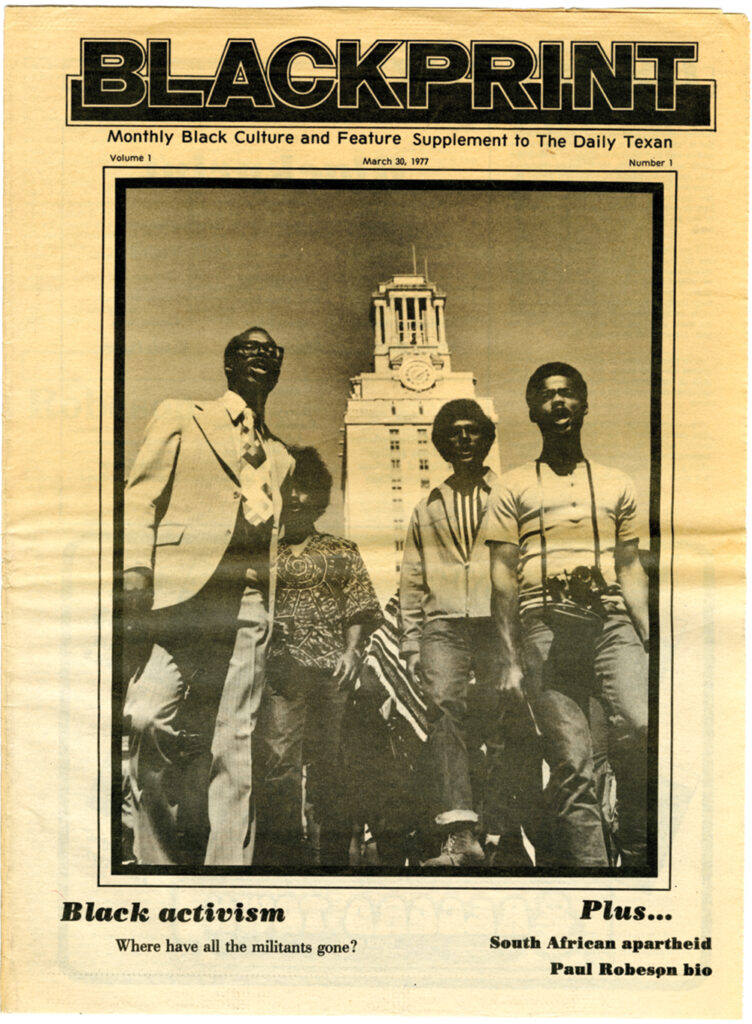The John L. Warfield Papers
BY ZARIA EL-FIL

Freedom has long been theorized in university spaces as a matter of intellectual engagement. Historically, Black freedom organizing has taken place at the collegiate level through research that throws white western conceptions of world order into crisis and asserts the Black experience as one that deserves to be considered. At the University of Texas at Austin specifically, Black students (graduate and undergraduate alike) have been fighting for various forms of equality since integration. In addition to academic responsibilities, Black students are also tasked with laying the foundation for future African Americans to come. This intense, strenuous form of labor often goes unnoticed as such. A look into the John L. Warfield Papers, which are part of the Black Diaspora Archive housed at the Benson, uncovers the fruitful collaboration between Black students and Black Studies as early as 1973.
Known for his commitment to racial justice, Dr. John Lewis Warfield fought tirelessly to speak out against racism both on campus and in the Austin community, and he regularly organized programs to highlight the contributions and concerns of African and African American people. His work with the African and Afro-American Studies and Research Center created the foundation for the contemporary Black Studies unit at UT. Materials in the Warfield archive include various pamphlets, newsletters, handbills, brochures, articles, and journals highlighting African and African-American history, culture, and scholarship. In Box 10 of the Warfield Papers, there are news clippings that illustrate the liberation politics of Black UT students. Daily Texan news clippings include Black students’ responses to international struggle across the diaspora (particularly through anti-Apartheid protests). In addition, the collection houses copies of local social justice newspapers such as We the People and The Villager, and national newspapers such as Unity Struggle and The Militant.
The work of students, as articulated in the John L. Warfield Papers, shows the connection between UT students and the broader Black freedom organizing. It is my hope that future UT students can uncover the individuals who risked their lives to fight for the space we currently occupy at this university. I also hope that this collection inspires students to continue the fight for those who will come after them.
Zaria El-Fil was the 2019–2020 AKA Scholars Black Diaspora Archive intern.
IN HONOR OF THE CENTENNIAL of the Benson Latin American Collection, staff members submitted short descriptions of some of their favorite items in the collection.
